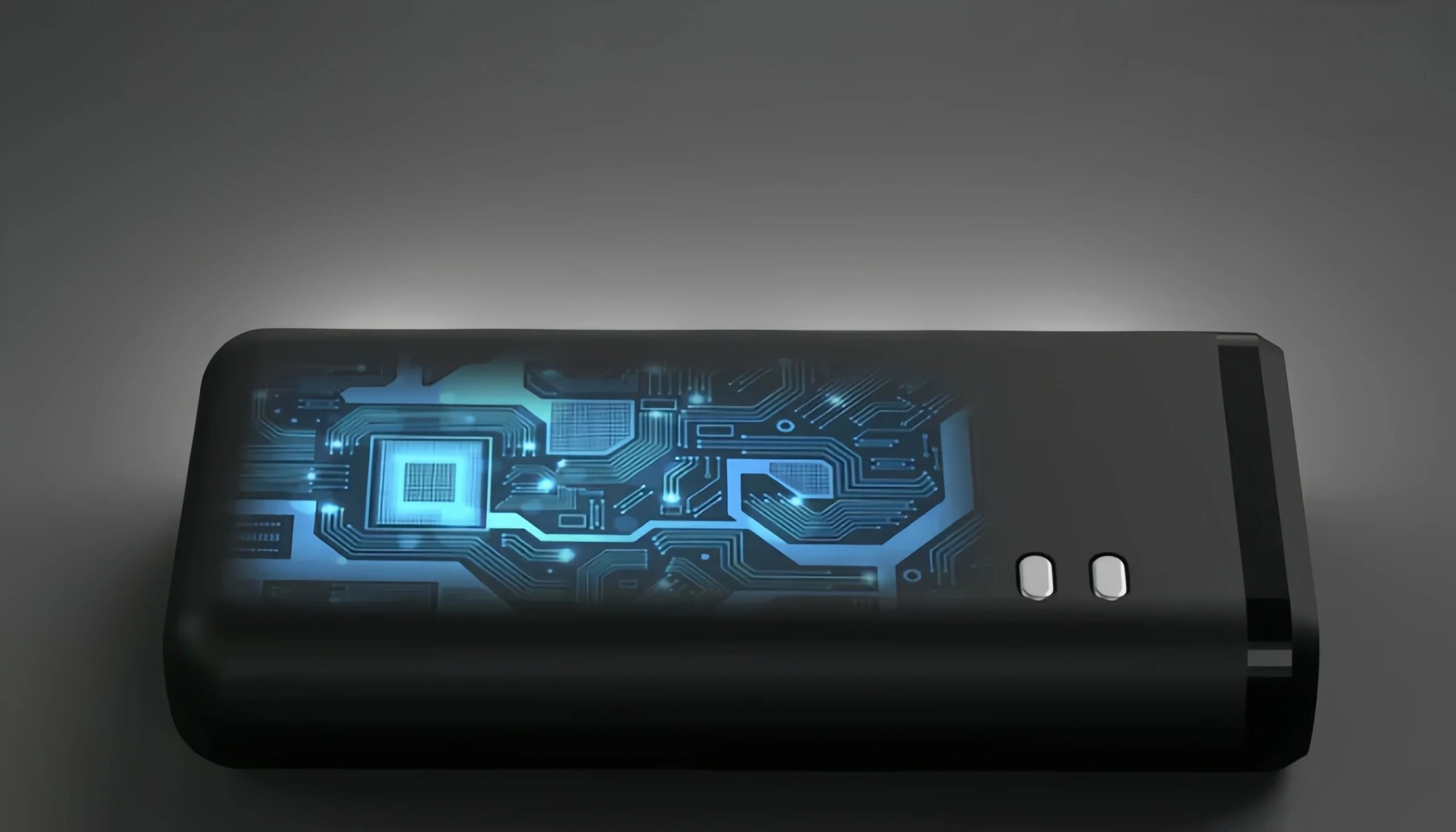- Missed It? Get a Second Chance. Black Friday Reloaded.
₫0.00
How to Choose Power Bank Battery Cells? Lithium Polymer vs 18650 Battery Cells Comparison
Choosing the right battery cell is critical when selecting or designing a power bank. The two most common types of battery cells used in power banks are Lithium Polymer (LiPo) and 18650 Lithium-ion cells. Each has its own advantages and disadvantages that affect performance, safety, and usability. This blog explores the key differences between these two types of battery cells to help you make an informed decision.
What Are Lithium Polymer and 18650 Cells?
Lithium Polymer batteries use a polymer electrolyte instead of a liquid one, allowing for flexible shapes and lightweight design. They can be molded to fit compact and slim designs, making them perfect for ultra-portable power banks. In contrast, 18650 cells are cylindrical lithium-ion batteries, typically encased in a hard steel shell with a fixed size, known for their stability and long cycle life.1
Advantages of Lithium Polymer Batteries
- Lightweight and Flexible: LiPo batteries are thinner and lighter than 18650 cells, offering flexibility in device design, especially where space is limited.2
- Enhanced Safety: Although LiPo batteries can catch fire if damaged or improperly handled, they generally carry a lower risk of exploding compared to 18650 cells, whose steel shell can still pose safety hazards if poorly made.3
- Higher Energy Density: They can store a large amount of energy in a small volume, suitable for powering slim and light devices.45
- Faster Charging: LiPo batteries support rapid charging, which is advantageous for quick power-ups.5
Disadvantages of Lithium Polymer Batteries
- Fragility: The flexible and soft aluminum-plastic packaging makes LiPo batteries more vulnerable to physical damage and deformation compared to the robust, steel-encased 18650 cells.3
- Shorter Lifespan: They typically have shorter charge cycles (300-500 cycles) than 18650 (500-1000 cycles), reducing long-term cost-effectiveness.6
- Production Consistency: Manufacturing LiPo cells is challenging, and quality varies significantly across manufacturers.36
Advantages of 18650 Battery Cells
- Durability and Protection: 18650 cells come in rigid steel casings, offering resistance to physical damage and more stable performance.7
- Long Cycle Life: They generally last longer, with 500 to over 1000 charge cycles depending on quality and usage.
- Higher Capacity Availability: 18650 cells commonly offer capacities ranging from 2200mAh to 3600mAh with stable discharge performance.
- Cost-Effectiveness: Due to mature production technology, they are generally cheaper than LiPo batteries.6
Disadvantages of 18650 Battery Cells
- Fixed Size and Weight: Their cylindrical shape and size (18mm diameter, 65mm length) limit design flexibility and make 18650 batteries heavier.7
- Safety Risks: If damaged or improperly used, 18650 cells can short circuit or even explode, requiring careful circuit design and protective features.3
- Slower Charging: They usually have slower charging rates compared to LiPo.5
Which One Should You Choose for Your Power Bank?
If portability, lightweight, and compact design are priorities, Lithium Polymer batteries are preferable. They fit slim power banks well and offer a balance of safety and high energy density. However, if long-lasting power, stable performance, and cost-effectiveness are more important, 18650 batteries are the better choice due to their durability and capacity range.
Safety-wise, both require careful handling: LiPo batteries need more delicate care due to packing fragility, and 18650 cells must have protective circuits to prevent overheating and short circuits.
This comparison helps clarify the strengths and weaknesses of both Lithium Polymer and 18650 battery cells for power banks. Choose based on your usage needs, device design, and safety requirements.
- https://ebluetimes.com/blogs/newsroom/the-ultimate-guide-to-power-bank-battery-cell-materials
- https://www.pknergy.com/news/why-are-li-po-batteries-so-popular/
- https://www.benzokorea.com/blog/post/18650-battery-cell-vs-lithium-polymer-battery-cell-which-one-is-safer.html
- https://www.topwellpower.com/info-detail/advantages-and-usage-scenarios-of-lithium-polymer-batteries
- https://holobattery.com/lithium-ion-vs-lithium-polymer-batteries/
- https://www.ufinebattery.com/blog/18650-cell-or-lipo-battery-cell-choosing-the-best-battery/
- https://batteryuniversity.com/article/safety-of-lithium-ion-batteries

XIMAND Blog
Here, we dive into the ever-evolving world of electronics—from smartphones and laptops to smart home gadgets, wearables, and cutting-edge AI innovations. Whether you’re looking for in-depth reviews, practical tips, or insights into industry trends, you’ll find valuable content tailored for you.
Technology isn’t just changing the way we live—it’s reshaping the future. Whether you’re a tech enthusiast, a casual user, or simply searching for the perfect gadget, this blog offers expert, unbiased, and easy-to-understand guidance.
.

Product categories
Posts Widget
Join our newsletter
Get our emails for info on new items, sales and much more.
Register now to get latest updates on promotions & coupons. Don’t worry, we not spam!
Your Phone’s Ultimate Case.
Join thousands who trust Ximand for daily durability without sacrificing style.
Need Help?
Customer Service
- -5% for all order in this week
- Free delivery for all orders






